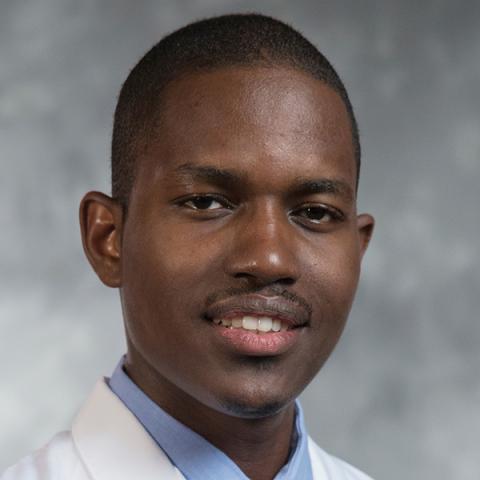One year ago, two significant events occurred in my life that were quite the opposite of each other. Last year, I discovered during The Match, like many current graduating medical students around the country have, where I would be for the next three years. But also, the world around us changed forever due to a global pandemic.
In a way, these two events antagonized each other and, at the same time, complemented each other. I knew I was going to have a different experience than the many before me. For time immemorial, The Match had symbolized a time of great achievement, and it is a requirement to complete residency training to become a fully licensed independent practicing physician. However, we could not celebrate in the traditional sense—in an auditorium filled with mentors, family, and classmates as the big reveal happened. Instead as the past year had been, it was held over Zoom.
I attended all the previous Match Day ceremonies in great anticipation of my big day, but this felt nothing like the real deal. Also, because we were amid a pandemic and had matched, we had to make the difficult decision when the Governor of Massachusetts asked that we volunteer in the fight against the pandemic. How could I say no? I set out on this path to be of service to others, and now there was much need for our service. On the other hand, it meant graduating a few months earlier than planned and sacrificing the short but sacred break in-between medical school and starting a very hectic time in my training: intern year. As difficult as this was, looking back, I am thankful I made the choice I did, but part of me still wonders what a traditional end of medical school is like.
What Surprised Me About Intern Year
I recently participated in a Q&A session for soon-to-be interns at Duke School of Medicine. One of the questions asked of us: ”What’s one thing that surprised you about internship, and what’s one thing that you already knew coming into intern year?” For me, the most surprising thing has been the steep change in responsibility. The minute you have an M.D. next to your name, expectations change. Whereas just a couple of days ago when you were a med student taking orders from others, you now have to make those tough decisions.
I can still remember my early days as a brand-new doctor during my time volunteering in the COVID pandemic. I responded to a call for a patient who was in sustained Ventricular tachycardia, a dangerous heart rhythm. He appeared stable, and my approach was to take my time to assess and determine the next steps. The ICU nurses knew this was a recipe for failure, and they had amiodarone, a potent antiarrhythmic drug in their hands, ready to administer. They looked at me and said, ”We need you to give us the OK to administer.” Knowing that this patient was a heart transplant recipient made me even more uncomfortable about potentially doing the wrong thing.
Many more situations like this had played out throughout my intern year, albeit not with this level of acuity. Luckily, there is always help around the corner from a more senior colleague, as was the case that day in the ICU. The cardiology fellow came to my rescue. It turned out giving the amiodarone did not make a difference and that patient eventually needed to be life-flighted to a different hospital. But always know that you can ask for help if there is a need.
What I Already Knew About Intern Year
The one thing that I knew about intern year that did not surprise me is how busy it was going to be, and this has been the case. It made me long for the times I had my weekends and could do whatever I wanted instead of being told where to be on any given weekend. I remember residents telling me to make the most of those times whiles they last. Now, as an intern myself, I try to impart the same wisdom to current med students. But then again, I decided to volunteer my free time after graduating from med school to work during the pandemic. As paradoxical as this may sound, I strongly encourage anyone who has to make a similar choice to take some time off for themselves. When this pandemic started, no one realized how long it would last. Now looking back, we were heading into a marathon, and starting full speed was probably not the best way to prepare, although I realize that if I have to make a similar choice again, I likely will.
Now that there is light at the end of the tunnel with vaccines available, I encourage graduating med students to take some time off and prepare for what will undoubtedly be the busiest time in their career. Tie up some loose ends in your life, from organizing your belongings to connecting with loved ones; it will make intern year a lot better and ensure you can start with your energy and emotional tank full. Nothing can fully prepare you for intern year, not even spending six weeks working in the ICU before July 1.
Umaru Barrie, M.D., is a first-year resident with the Duke Family Medicine Residency Program. Email umaru.barrie@duke.edu with questions.
Editor’s note: Duke Family Medicine residents guest blog every month. Blogs represent the opinion of the author, not the Duke Family Medicine Residency Program, the Department of Family Medicine and Community Health, or Duke University.
